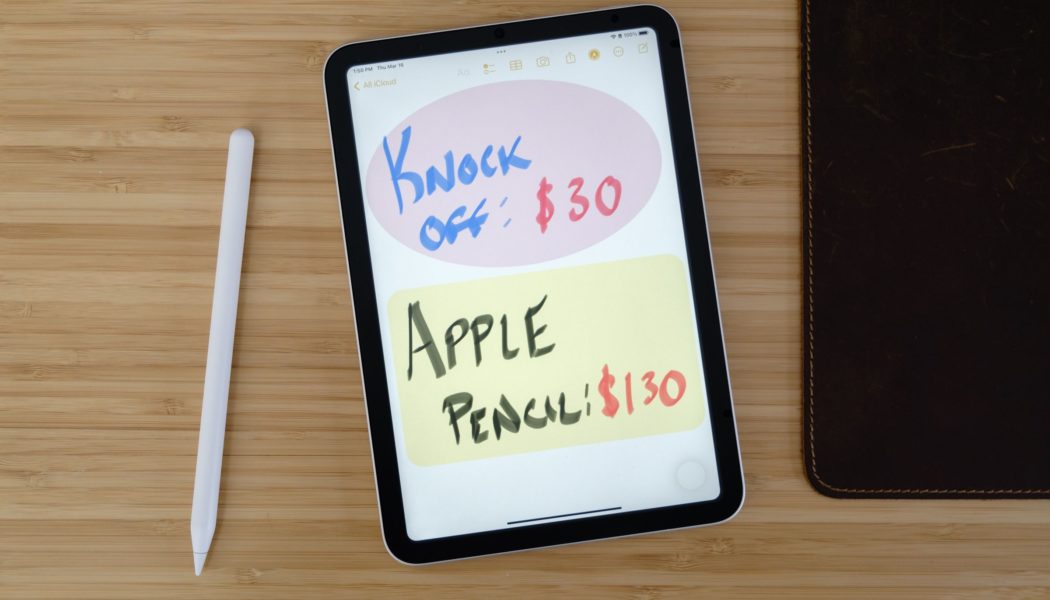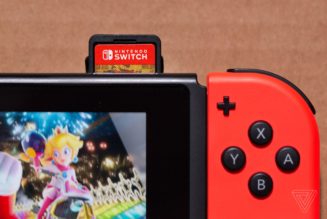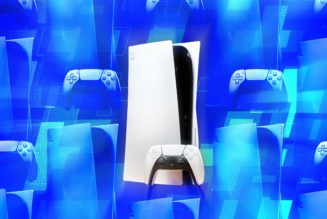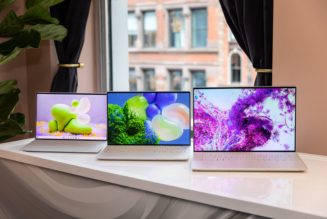If you’re Pencil-curious and on a budget, here’s a good option for you.
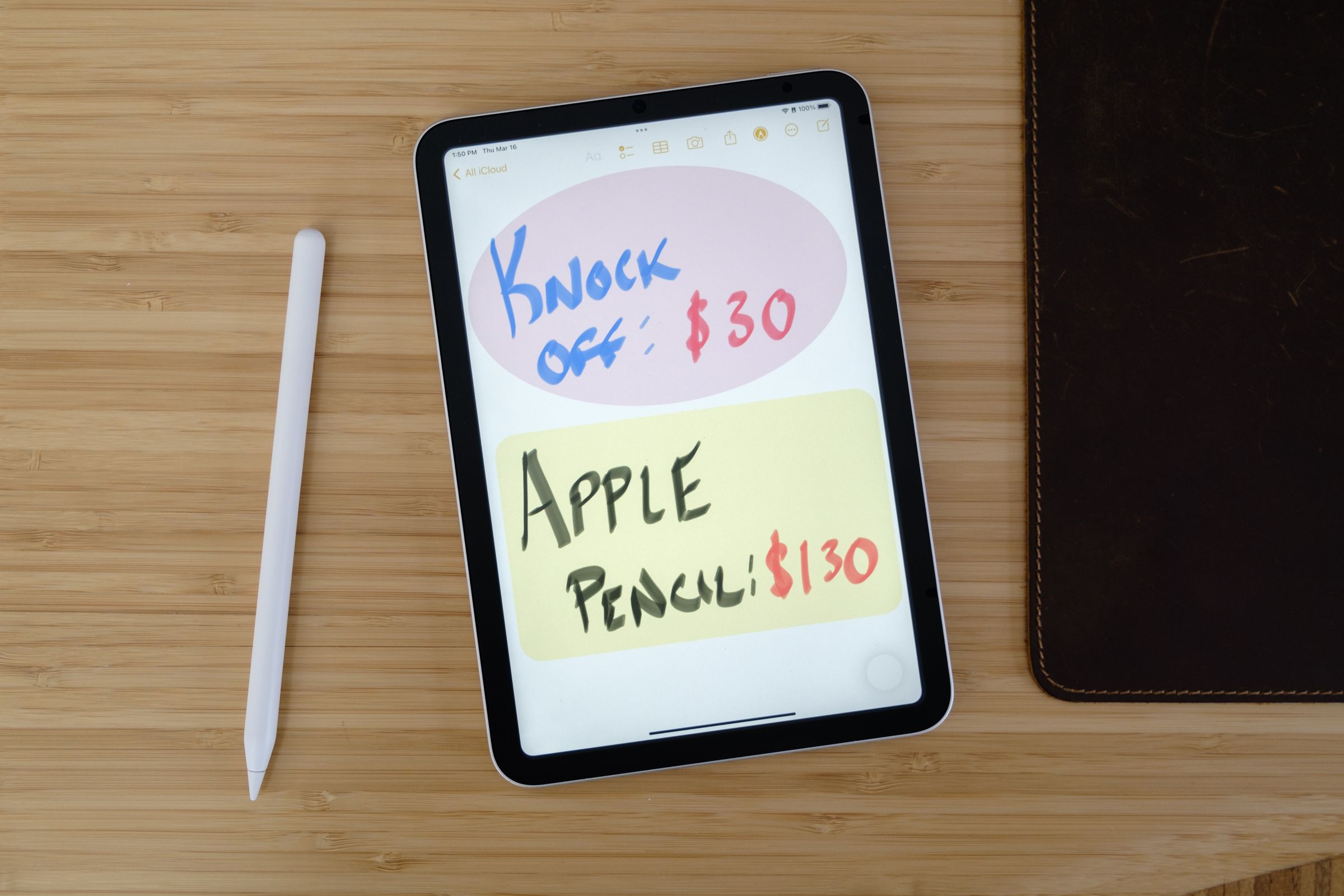
For the past few months, I’ve been cheating on my Apple Pencil. Instead of using Apple’s $129 stylus with my iPad Mini for notetaking, I’ve been using an alternative I purchased off of Amazon for about $25. It looks nearly identical, works nearly as well, and even snaps onto and charges from your iPad. And while this $25 stylus doesn’t quite match all of the Apple Pencil’s features, it comes awfully close to providing a similar experience for a fraction of the price.
The stylus I’ve been using is from a random brand called “StylusHome,” but there are many similar ones listed on Amazon for around the same price. It apes the styling of Apple’s second-generation Pencil exactly — if it weren’t for the logo on the first-party one, I wouldn’t be able to tell them apart visually. It has a flat side that magnetically snaps to the edge of my iPad Mini (and would to an iPad Pro or iPad Air, as well), where it also charges its battery. It even comes with a replacement tip in the box if the original ever wears out.
Amazon lists this Pencil clone for about $30, but it was about $25 when I bought it a few months ago. At the time of writing, there’s a discount plus a 10 percent coupon that brings it down to about $24. Compare that to the $129 regular price of the Apple Pencil or even the $90 to $100 it costs when it goes on sale, and that’s a pretty wide gulf.
Given that price difference and the fact that outside of Logitech’s Crayon, the world of third-party Apple Pencil options doesn’t really seem to exist, I really wasn’t expecting it to work this well. But the StylusHome Pencil is just as lag-free and responsive when writing on the screen as the Apple Pencil. It is very slightly lighter (15.2 grams vs. 17.9 grams) but otherwise feels exactly the same. It supports tilt shading but doesn’t have pressure sensitivity. That’s not a problem for me since all I use it for is writing notes, but if you’re an artist, you might miss that feature.
The thing I miss more is the Apple Pencil’s double-tap feature, which lets me switch between writing and erasing with just a quick double-tap on the side of the stylus. The StylusHome doesn’t support this at all — just like the first-generation Apple Pencil — so you have to use the on-screen controls to switch between pen and eraser each time.
The StylusHome also, unsurprisingly, doesn’t have as tight integration with iPadOS as Apple’s Pencil. You don’t get a little pop-up notification telling you battery life when you stick it to the side of the iPad, for example. But it does support displaying the battery life in Apple’s battery widget, which you can place on your iPad’s homescreen or in the widget tray to the left of the homescreen. This is a fine workaround for me since I never use the stylus long enough to fully deplete its battery anyways.
The fake Pencil uses Bluetooth to communicate with the iPad, and there’s an initial pairing you have to do the first time you use it through the iPad’s Bluetooth settings menu. And when you use the stylus again after some time away, it won’t write on the screen because it’s gone to sleep. The remedy here is to just stick it back on to the side of the tablet for a second or two to wake it back up and try again — from there, it’s instantly responsive, just like Apple’s Pencil.
For Serious iPad Users, those that perhaps create digital art for a living, I’d still recommend sticking with the first-party Apple Pencil. But if you’ve been curious if an Apple Pencil could add to your iPad experience, either for casual doodles, navigating the software, or taking handwritten notes but have been scared away by the hefty cost of Apple’s version, a knockoff version like this can provide you with many of the same features for a fraction of the price.

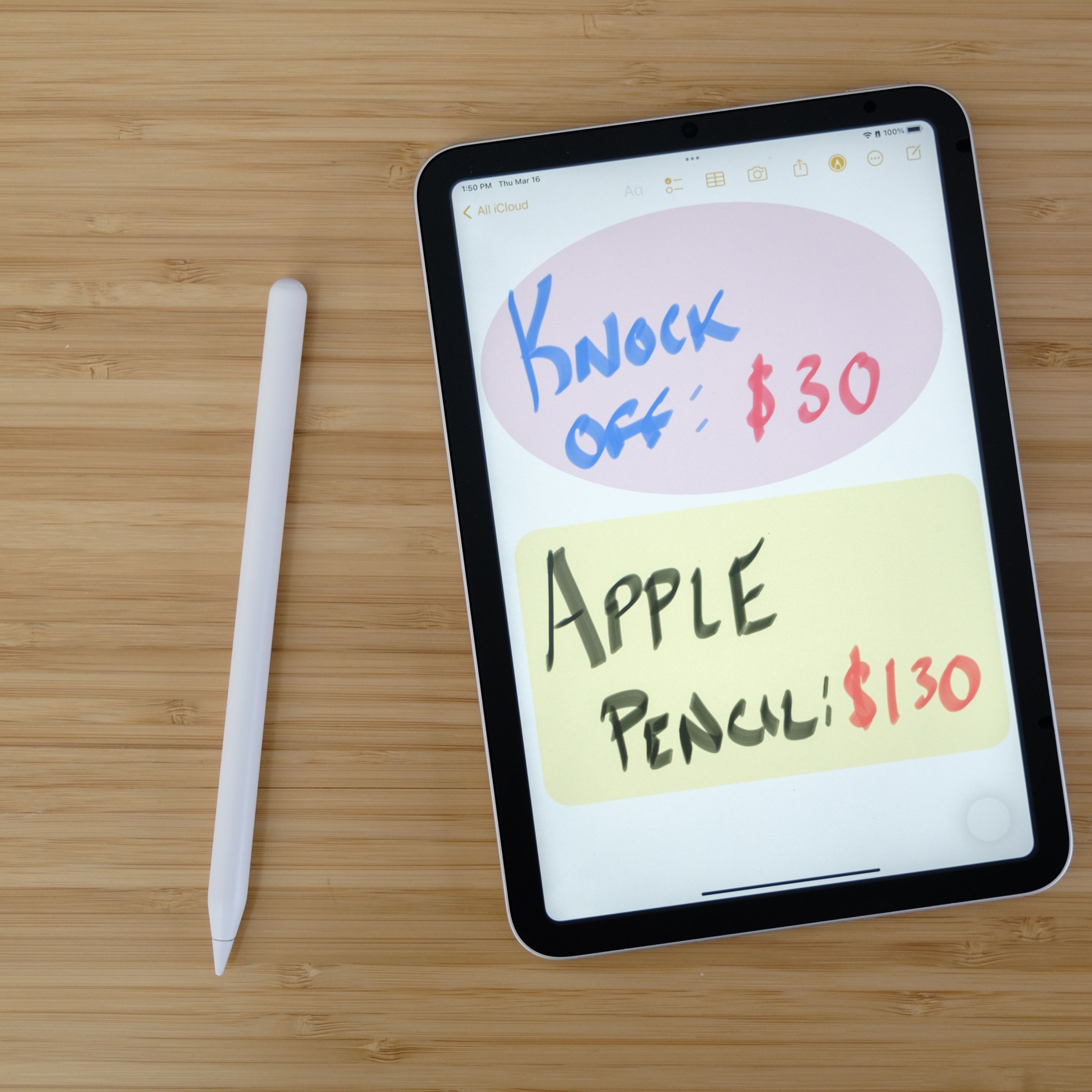
The StylusHome pencil looks just like Apple’s second-generation Pencil and works with the iPad Mini, iPad Air, and iPad Pro. It doesn’t support pressure sensitivity but does support tilt shading and charges on the side of the iPad, just like the real thing. And it costs about $100 less than Apple’s.
Photography by Dan Seifert / The Verge
